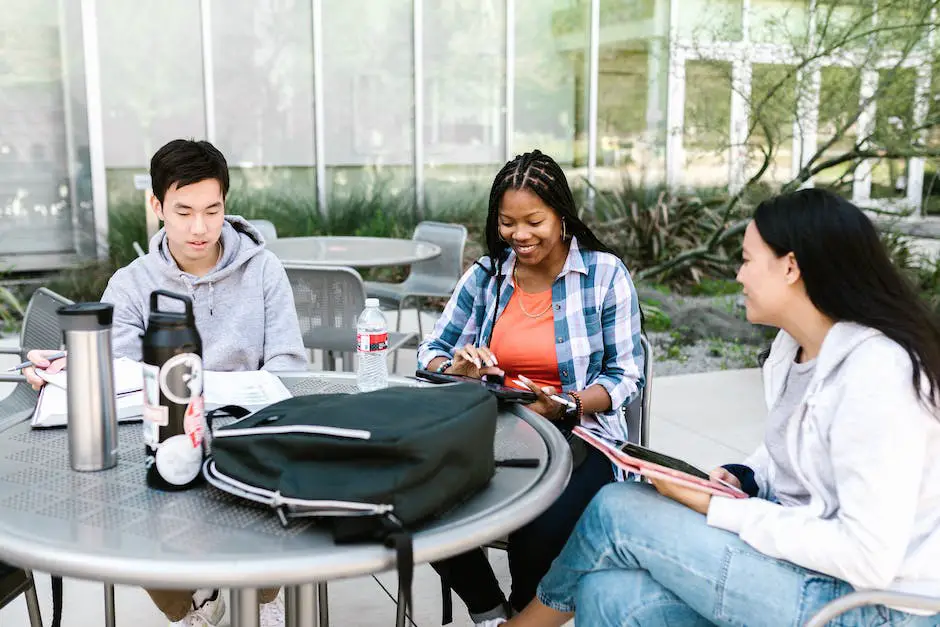New York City is a leading hub for arts, culture, and finance and is home to some of the world’s leading medical schools.
These renowned educational institutions contribute to the city’s reputation and significantly shape global health dynamics through rigorous academic pursuit, cutting-edge research, and impactful service.
From Ivy League schools to institutions known for their trailblazing discoveries, these medical schools have much to offer regarding education, faculty expertise, resources, and opportunities.
This article illuminates the multifaceted aspects of NYC’s medical schools. It provides an insider’s look into their curriculum, admission processes, financial aid availability, and students’ lived experiences pursuing their medical dreams in a city that never sleeps.
Table of contents
Overview of Medical Schools in NYC

Medical Schools in New York City: A Copious Presence
New York City boasts several renowned medical schools shaping the future of healthcare.
Some of these are Columbia University College of Physicians and Surgeons, Albert Einstein College of Medicine, Weill Cornell Medicine, New York University Grossman School of Medicine, Icahn School of Medicine at Mount Sinai, and Rockefeller University.
These institutions cater to thousands of students, advocating continued education and cutting-edge research in various medical fields.
Notable Rankings and Recognition
These medical schools are regularly highlighted in national and international rankings, demonstrating their solid global reputation.
For instance, Columbia University College of Physicians and Surgeons consistently secures top order in U.S. News and World Report’s evaluation.
At the same time, Weill Cornell Medicine is recognized for its innovative programs and world-class faculty.
Similarly, the New York University Grossman School of Medicine routinely features among the top 10 medical schools in the United States, and the Icahn School of Medicine at Mount Sinai is similarly well-regarded for its commitment to medical innovation and patient-centered care.
Significance of New York City’s Medical Schools
The presence of these medical schools in New York City is significant as it enhances the city’s reputation as a hub for medical education and innovation.
These institutions produce thousands of highly-trained healthcare professionals every year who contribute significantly to both regional and national healthcare systems in their capacities as doctors, researchers, educators, and public health experts.
Moreover, these institutions also serve as economic drivers, providing many employment opportunities and attracting considerable funding.
Competitive Entry Requirements
Prospective medical students interested in these institutions should know that entry requirements are highly competitive.
Most schools expect an undergraduate degree, typically in a science-heavy field, alongside solid performance on the Medical College Admission Test (MCAT).
Additionally, prospective students should possess a strong record of academic excellence, superb letters of recommendation, and notable experiences in healthcare settings. It’s also essential for applicants to demonstrate a commitment to medicine through volunteer work or research.
While certain minimum GPA and MCAT scores are generally required, admissions committees also consider other factors such as personal character, motivation for medicine, and life experiences. Therefore, preparing a well-rounded application is crucial for success.
Combining Research and Clinical Practice
Medical schools in New York City are renowned for their rigorous research and clinical practice emphasis.
They provide grand opportunities for students to partake in influential research throughout their schooling, often partnering with area hospitals for clinical experience.
By offering a fusion of thorough academic investigation and hands-on practical training, these institutions prime students for successful medical careers.
Profiles of Top Medical Schools

Weill Cornell Medical College: Premier Medical Education in the Ivy League
Residing at the city’s epicenter, Weill Cornell Medical College is recognized worldwide for its outstanding medical and research curriculum.
The institution provides many degree options, including MD, PhD, dual and MD-PhD programs. Weill Cornell’s course load centres on delivering a well-rounded medical education that urges students to understand how varying sociocultural elements impact patient care.
The teaching faculty at Weill Cornell comprises exceptionally accomplished professionals from diverse medical disciplines.
These experts employ their considerable knowledge and experiences in shaping future medical leaders.
The student body represents various races, ethnicities and socio-economic backgrounds, highlighting the school’s dedication to diversity.
While the annual tuition fee is around $59,000, ranking it as one of the pricier options in the city, the college does offer a series of scholarship programs and financial aid.
This ensures that monetary hindrances do not impede promising students from pursuing their medical careers.
Columbia University Vagelos College of Physicians and Surgeons: Trailblazers in Medical Research and Education
A part of the prestigious Columbia University, the Vagelos College of Physicians and Surgeons is among the top-ranked medical schools in the nation.
Its curriculum is grounded in understanding human biology and pathology, making it a hotbed for medical breakthroughs and innovative treatments.
The faculty features many world-renowned experts, making it one of the best places to receive medical education.
The tuition for the MD program is roughly $61,000 per year. To ensure affordability, the university provides significant financial aid to its students, making it feasible for students of varied economic backgrounds to pursue their medical degrees.
Regarding standout programs, the college’s MD/MPH program is worth noting. It allows students to engage in public health issues, providing a broader perspective on patient care and healthcare policy.
NYU School of Medicine: Fostering Excellence in Medical Practice and Research
The New York University School of Medicine ranks among the nation’s top medical schools. MD, dual degree, and PhD programs offer a well-rounded education that fuses patient-centred learning, research, and public service.
Its faculty comprises accomplished professionals and academicians who contribute significantly to shaping the future of the medical profession through education and research.
At NYU School of Medicine, diversity in student demographics is integral to its mission, promoting an inclusive environment that recognizes and respects individuality.
One of the standout points of NYU School of Medicine is their completely tuition-free policy for all their MD degree students, regardless of merit or need.
This generous stance has significantly removed financial constraints for many students, allowing them to focus solely on their academic and professional pursuits.
In the heart of New York City, several renowned medical schools offer degree programs backed by exceptional teaching methodologies.
Their commitment is to uphold and even raise the bar for the medical profession’s stringent standards.
The impact of their contribution transcends the city’s boundaries and reverberates across the national healthcare system.
Admission Process and Entrance Exams

Getting Into NYC Medical Schools: Breaking Down the Admission Process and Entrance Exams
Distinguished schools like the Columbia University Vagelos College of Physicians and Surgeons, Weill Cornell Medical College, New York University School of Medicine, Icahn School of Medicine at Mount Sinai, and the Albert Einstein College of Medicine constitute several of New York City’s top-tier medical schools.
Besides their distinct locations and individualized offerings, these institutions have one more common thread- a comprehensive and coherent application and admission process.
Prerequisites and Application Process
Most medical schools in New York City require a bachelor’s degree with a strong science foundation as a prerequisite.
Prospective students typically need undergraduate biology, chemistry, physics, and mathematics coursework.
Additionally, most medical schools value a well-rounded academic background and seek applicants with social sciences and humanities coursework.
The admissions committees often look for students who have demonstrated strong analytical and problem-solving skills and a commitment to service.
Significant milestones in the medical school application timeline include taking the MCAT, submitting primary and secondary applications, and participating in interviews.
The MCAT (Medical College Admission Test) is typically taken in the spring or early summer before planned medical school enrollment.
Application Timeline and MCAT
Looking at specific timelines, primary applications usually open in May and close in October.
However, the earlier an application is sent, the better chance it has of being reviewed while spaces are still available.
Secondary applications and supporting documents are generally due within two weeks of receipt.
The MCAT is taken by nearly all medical school applicants and tests potential students’ knowledge of natural, behavioral, and social science concepts alongside critical analysis and reasoning skills.
Test scores range from 472 to 528, with a median score of 500. A competitive MCAT score for top-tier medical schools, like those in New York City, is often above 510.
Interviews and AMCAS
Interviews allow applicants to demonstrate their understanding of the medical profession and articulate their motivation for pursuing a medical career.
For many schools, discussions occur between August and January in the year preceding maturation.
It’s also important to mention that all these schools participate in the American Medical College Application Service (AMCAS). This centralized application processing service simplifies the process by allowing students to submit just one application for multiple schools. AMCAS applications open in early May and can begin to be submitted in early June.
Scholarship Opportunities and Financial Aid in NYC Medical Schools

Exploring the Premier Medical Schools of New York City
The medical education scene in New York City boasts top-tier establishments such as Weill Cornell Medicine, NYU School of Medicine, Columbia University Vagelos College of Physicians and Surgeons, and Icahn School of Medicine at Mount Sinai.
These institutions present diverse financial aid options for domestic and international students, including scholarships, grants, and work-study programs, further enhancing their appeal to prospective applicants.
Types of Financial Aid
Financial aid comes in many shapes and forms and can be categorized into four types: scholarships, grants, loans, and work-study opportunities.
Scholarships and grants are the most sought-after as they need not be repaid. Loans, although common, must be repaid, typically with interest.
Work-study opportunities allow students to work and earn money to help cover school expenses.
Scholarships and Grants at NYC Medical Schools
NYU School of Medicine offers full-tuition scholarships to all current and future students in their MD degree program, regardless of need or merit, helping alleviate the debt burden on students.
Columbia University’s Vagelos College of Physicians and Surgeons offers various scholarships for in-state and out-of-state students, including the VP&S Club Cecil Awards, offering $5,000 to students for arts, sciences, and community service projects.
Cornell’s Weill Medical College provides scholarships based on merit and financial need. These are determined on an individual basis and are offered as part of a comprehensive financial aid package. They also have a complete list of external scholarships students can apply to.
Icahn School of Medicine at Mount Sinai commits to meeting every admitted student’s total demonstrated financial need.
They offer both need-based scholarships and merit scholarships. Additionally, the “Scholarships for Disadvantaged Students” program exists for students from disadvantaged backgrounds.
Work-Study Opportunities
Work-study programs offer students part-time employment to earn funds to pay their tuition fees. Many of these programs allow students to gain valuable experience in their chosen field while making money for their education.
Weill Cornell Medicine, NYU School of Medicine, and Columbia participate in the Federal Work-Study Program, which provides part-time jobs for undergraduate and graduate students with financial need. Icahn School of Medicine also offers research-based work-study opportunities.
Loan Programs Available
NYU offers students federal, institutional, and alternative loans based on their relative financial needs. They also participate in the Federal Direct Stafford (unsubsidized) and the Direct Grad PLUS loan programs.
Columbia provides education financing plans and loan programs, including federal and private loan options. Weill Cornell Medicine offers several low-interest loans for eligible students. Icahn School of Medicine provides Access, Federal Direct Unsubsidized, and Health Professionals Student Loans (HPSL).
Note that eligibility criteria may vary based on the type of loan program, and students are usually required to fill out the Free Application for Federal Student Aid (FAFSA) as part of the application process.
Every medical school in New York City invites students to apply for financial aid, emphasizing their goal of making medical education accessible to all. They strive to attract a diverse range of students who showcase a vast array of talents.
Potential students should explore the variety of opportunities each school offers and are advised to apply early to receive maximum benefits.
Life as a Medical Student in NYC

An Overview of New York City Medical Schools
In New York City, you can find some of the most renowned medical schools in the country and the world.
These include the Columbia University Vagelos College of Physicians and Surgeons, Weill Cornell Medicine, NYU Grossman School of Medicine, and the Icahn School of Medicine at Mount Sinai.
These esteemed institutions offer top-tier medical education, opportunities for research and a range of clinical experiences.
Cultural Experiences in NYC
Becoming a medical student in NYC means immersing oneself in a rich tapestry of cultural experiences.
From vibrant food scenes to music festivals, ballets, operas, and Broadway shows, medical students can easily find activities that align with their interests.
This diverse cultural exposure also serves to enrich their understanding of the diverse patient populations they will serve in their future careers.
Balancing Clinical Experience and Studies
Life as a medical student in NYC can be demanding, but it is also incredibly rewarding.
The academic pressure is intense, with students required to learn vast amounts of information in a relatively short time.
Concurrently, students are also engaged in clinical rotations, gaining practical experience and learning the intricacies of patient care.
Balancing these responsibilities requires solid time-management skills, but it also enriches the medical school experience as students can immediately apply the knowledge in real-time situations.
Student Interviews and Anecdotes
According to interviews and anecdotes from current students, the heavy workload is manageable through the supportive environment fostered within the institutes.
As one Columbia medical student noted, teamwork and collaboration are highly encouraged.
Professors and experienced doctors are also readily available for guidance and mentorship, providing students with a wealth of knowledge and experience beyond what can be found in textbooks.
There’s an aspect of camaraderie that permeates the air in medical schools. Despite the rigorous coursework, students often say they couldn’t imagine spending their medical school years elsewhere.
NYC’s diverse patient demographics make for engaging clinical experiences and help students learn and grow professionally and personally.
Outreach Activities and Volunteer Opportunities
Furthermore, medical schools in NYC encourage students to get involved in community service or outreach activities.
This offers a break from the rigorous academics and allows students to give back to the community and gain a deeper understanding of patients’ diverse backgrounds.
Resources for Medical Students
NYC’s medical schools have modern resources for learning – laboratories with state-of-the-art equipment, comprehensive libraries, and even virtual reality rooms for simulation training.
Most schools also offer mental health resources, understanding the potential stress and pressures associated with medical studies.
Extracurricular Opportunities
Outside of academics, NYC offers medical students a wealth of opportunities. Many participate in clubs and organizations, attend conferences, and even undertake global health electives.
The city provides countless entertainment opportunities, relaxation, and exploration, offering a balanced lifestyle for hardworking medical students.
In conclusion, life as a medical student in NYC is a unique blend of rigorous academic learning, enriching clinical practice, and diverse cultural experiences.
It’s a challenging and stimulating environment that helps shape the future physicians who train here.
Conclusion
Embarking on a journey to study medicine is both challenging and rewarding. New York City’s leading medical schools offer an environment to thrive, grow, and contribute to the medical field.
With distinguished faculty, top-notch resources, and supportive communities, these institutions prepare students for successful medical careers and groom them to be thought leaders in their specialties.
The admission processes, while competitive, ensure that the most outstanding students are given a chance to make their mark.
In a city as diverse and vibrant as NYC, medical students learn from textbooks and the rich tapestry of the city’s experiences and opportunities.
